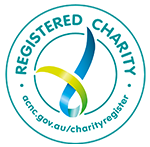Cataloguing editions and reprints
The vast majority of libraries or research collections, such as NCACL, use sophisticated systems that are often networked with much larger systems creating a national, or international catalogue of bibliographic and collection information. NCACL is similarly linked in to international retrieval.
While computer catalogues have in many ways made cataloguing easier, it is still a never-ending task in most libraries particularly at NCACL. Each year volunteers catalogue close to two thousand new items, mostly books. NCACL’s mission is to collect, document and preserve Australian children’s books and literature and to share the collection through outreach activities and particularly to make our resources available on-line, an important mission, but one that does create a lot of cataloguing.
NCACL builds its collection through donations of books and journals from publishers, authors, illustrators and the general public. We are particularly grateful to Angela, our eagle-eyed spotter at Lifeline, who discovers some special treasures amongst the second-hand books donated. Annually, NCACL receives three deliveries, of approximately 200 books each time, from Lifeline and this is a wonderful source of material to fill gaps in the collection and a great provider of self-published books.
NCACL is physically located at the University of Canberra and our catalogue works via the University library’s catalogue and through this, we are connected nationally to Libraries Australia and internationally to World Cat. These systems allow users anywhere to see which, if any, library holds a particular item. On occasion NCACL holds the only copy in the world. As with any large computer system this brings its own set of challenges and occasional frustrations but it provides the opportunity and the resources to share the NCACL collection with a world wide audience.
As a research collection, it is important that the NCACL catalogue records accurately reflect its holdings. The majority of the cataloguing is copy cataloguing whereby a new addition to the NCACL collection is attached to a matching record in Libraries Australia. This task is handled by Rose, ably assisted by Pat. They work hard to continuously update and improve the catalogue records to ensure that the information regarding editions, reprint dates, award notices, printing sequences and other useful facts that may be beneficial to researchers and other users is accurate and clearly shown on the records.
There are unique items such as self–published or rare books that require original cataloguing. These are undertaken by the University Library’s cataloguing staff whose assistance with this, and other tasks, is greatly appreciated. Access the Centre’s resources via the NCACL website
Rose Howes, Volunteer Cataloguer
Posted by: NCACL | Published: 03 Jan 2023

